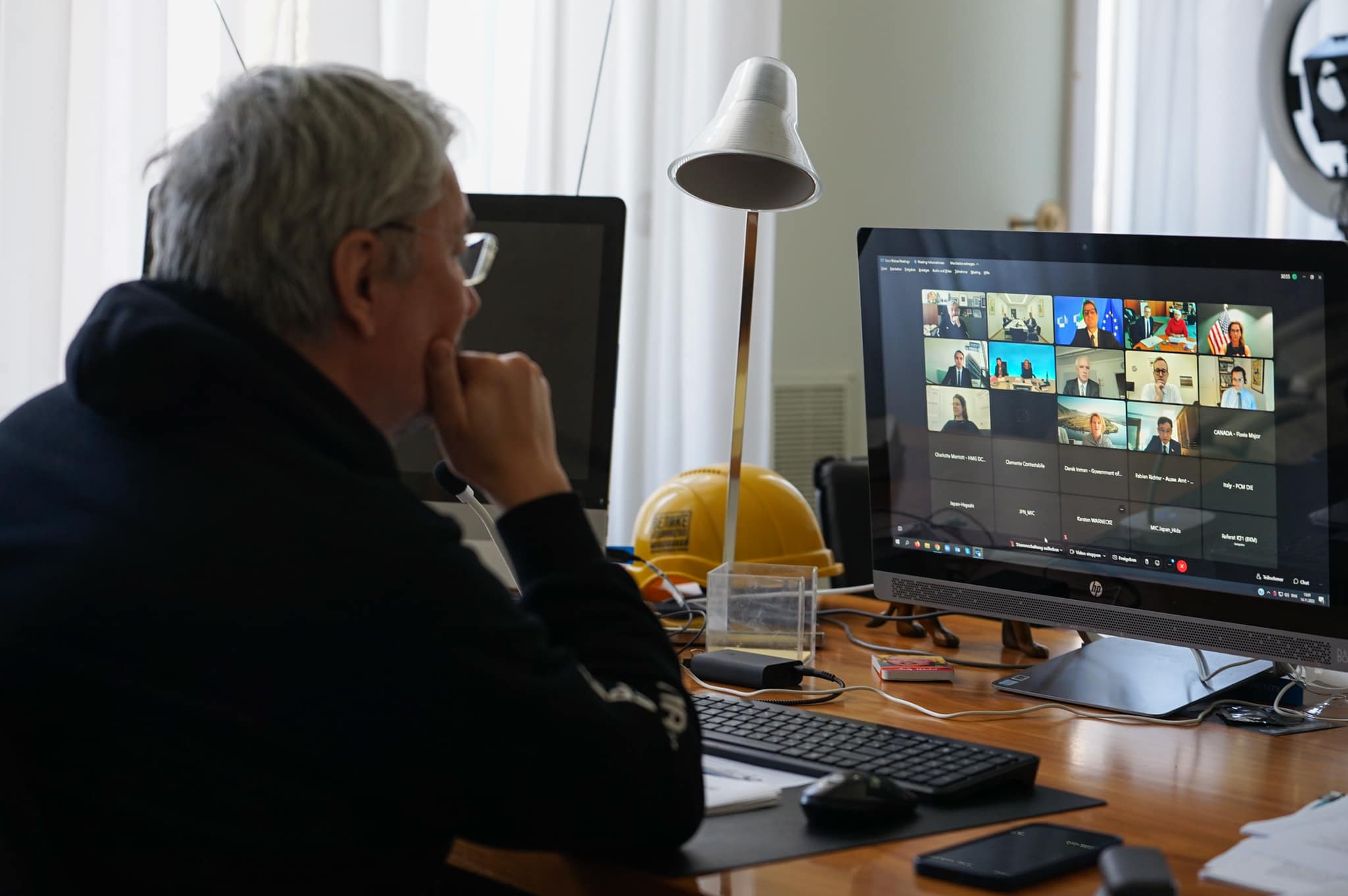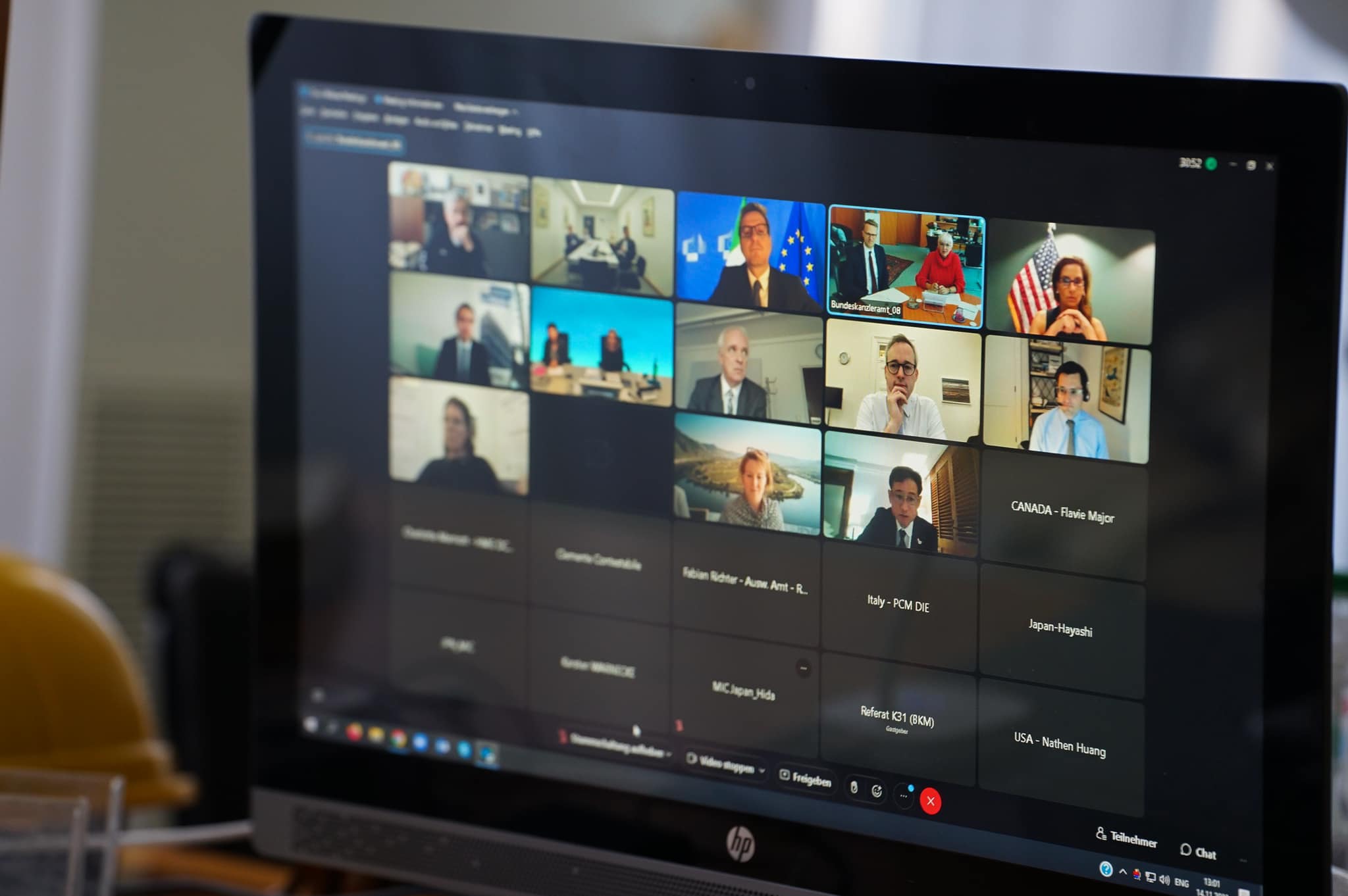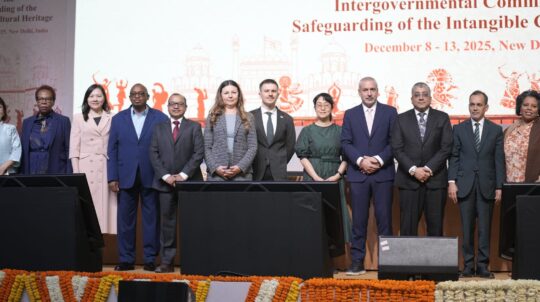On November 14, at the invitation of the German Minister of Culture and Mass Media, Claudia Roth, the Minister of Culture and Information Policy of Ukraine Oleksandr Tkachenko joined the online meeting of media ministers of the G7 countries to discuss joint actions to counter russian propaganda and disinformation.
The Ukrainian minister informed the G7 representatives about the situation in Ukraine, in particular about the work of the media during the war. As a result of russian aggression in Ukraine, 43 journalists died, 457 crimes against journalists were committed, infrastructure was damaged, and the advertising market ceased to function.
In their turn, russian propagandists repeatedly frightened the world with russia’s use of nuclear weapons, threatened European states with war for supporting Ukraine, carried out gas blackmail, contributed to the emergence of aggressive attitudes of russians against the entire democratic world, etc.

“The speed and scale with which russia spreads fakes and dangerous narratives around the world and how many resources it invests in it – cannot help but frighten. I proposed a plan and directions for cooperation in the format of the “Information Ramstein” initiative. These are sanctions against russian propaganda mouthpieces, criminalization of the spread of disinformation, support for Ukrainian media inside the country and in the world. But the main thing is the joint coordinated actions of the entire democratic world against russian information weapons. Ukraine was invited to join the new Democratic newsroom initiative – a mechanism for joint work of the leading news agencies of the G7 countries. I believe that together we will not allow this darkness to spread around the world,”said Oleksandr Tkachenko, Minister of Culture and Politics of Ukraine.

Many propaganda media are already blocked in the G7 countries, but some TV channels still broadcast via European satellites. For example, Eutelsat broadcasts about ten free channels on other satellites in Europe and other parts of the world. In particular, the RT Arabic channel speaks not only on the territory of Europe, but also in the Middle East and North Africa, where Russian narratives about the war in Ukraine are broadcast unilaterally.
Oleksandr Tkachenko offered the G7 countries the main steps within the framework of the “Information Ramstein” initiative:
- to implement joint measures to counter disinformation, in particular to promote the cooperation of information agencies;
- to introduce sanctions against russian propagandists who spread propaganda in the world;
- to promote the international broadcasting of Ukrainian channels, in particular the TV channel “FREEDOM”;
- to provide immediate support for the protection and preservation of media operating in Ukraine;
- to expand “cultural sanctions”;
- to ensure systemic cooperation at the government level;
- to develop a digital database;
- to ensure broad institutional cooperation;
- to create a Fund for the support of Ukrainian mass media.
In particular, currently it is about the introduction of sanctions against “NTV”, “NTV Mir”, “Channel One Russia”, “RenTV”, “Russia 1”, “Russia 24”, “5TV”, television and radio company “Petersburg” (Radio “Petersburg”, 5-tv.ru, Peterburg – Channel 5, 5 International), which spread russian propaganda and disinformation.
It should be reminded that earlier in the MCIP there was a meeting of the ambassadors of the Group of Seven with representatives of the Ukrainian media groups that broadcast in the telethon “United News” and Freedom. It was about the work of telethons and coordination of efforts to counter russian propaganda and disinformation.

